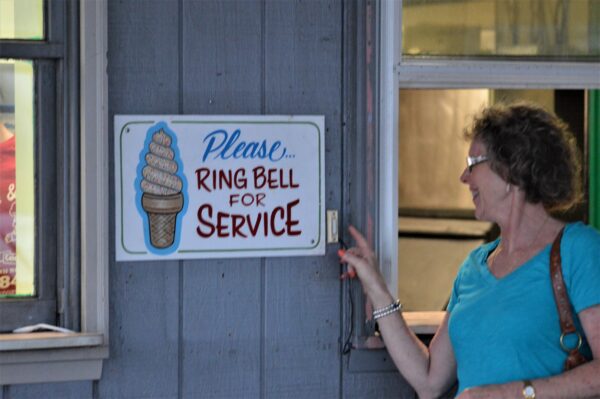The pandemic consumer cares about social responsibility more than ever
Perhaps no businesses have felt the sting of the pandemic more than small ones. Many startups and local companies have had to close temporarily, lay off staff, tap into personal funds, or seek out government assistance to survive. Some have shuttered permanently. It’s a grave understatement to say that the business landscape has changed, but it’s important to acknowledge that it’s not just who’s shopping or how or where they’re doing it that’s different. Customer expectations have also morphed, and corporate social responsibility is just as important as the quality of your product or service.
Customers are looking into ethical sourcing

In recent years, customers have already expressed more interest in where their products are sourced. As a response, brands like Everlane have made transparency a hallmark of their businesses. But now, customers don’t just want this from niche apparel brands – they want it from everyone.
COVID-19 has left no nation unscathed, and people all over the world have shared collective grief and panic. Many of the most impacted countries are those that source and produce goods for small businesses. Understanding the wide reach of the pandemic, customers have started to look behind the curtain to ensure that the businesses they frequent are nurturing supportive relationships with their suppliers instead of taking advantage of poor countries that have yet to recover. Are businesses acknowledging suppliers’ challenges and helping them? Or are they prioritizing profits over safety?
Small business owners can support suppliers by proactively reaching out to understand challenges, paying invoices in a timely fashion, improving access to information and equipment, and complying with local laws and regulations for safety and sustainability.
Entrepreneurs may be primarily focused on keeping their heads above water, but they can’t just achieve growth by any means necessary. Investing in smart, ethical sourcing now can ensure both smooth operations and devoted customers who believe in and trust your products.
Customers want diverse leadership
In the wake of global protests over the death of George Floyd, there has been a tremendous push to support Black-owned businesses. And that push has paid off – EatOkra, a black-owned business directory, saw a 4,450% increase in downloads at the start of June, and other apps in the same space have seen similar spikes in users. Customers are looking for businesses with leadership that already reflect the kind of change they’re seeking.
Thus, be open and transparent about who’s running your business, not just in the C-suite but at all levels. This doesn’t mean touting diversity as a means of boosting profits. But it does mean showing your customers proof of your commitment to diversity by highlighting who’s on staff. If diversity is an opportunity, this is the time to make a public pledge to improve the makeup of your company.
Supporting local causes has never been more important
The pandemic may be global, but for customers, its harshest effects are local. A May ZypMedia survey found that 53% of respondents planned to shop local, driven by a desire to support their community and boost the local economy. However, they’re also interested in how their favorite businesses are pitching in locally.
They want businesses to support frontline health workers and vulnerable populations, provide factual, useful information, give back to local communities and support their employees (through initiatives like extended sick leave policies and emergency funding). They also want businesses to continue pandemic-era services that prioritize health and safety, like curbside pickup and contactless delivery.
As an entrepreneur, you may have a duty to deliver growth and profits, but the pandemic has pushed customers to expect goodwill, philanthropy, and community service from small businesses, too.
Maintain authenticity in everything you do
Right now, customers are looking for trust, empathy, and acknowledgment of their hardships. They want personalized connections that reflect the struggles specific to their communities, and they want companies to do this in more authentic ways than simply running digital ads. For example, think of distilleries that have pivoted to making hand sanitizer, especially during times when supply couldn’t meet demand.
Brands are leaders at this moment, and they need to provide measurable support and hope for their audiences, but they also have to do it in a way that’s consistent with their messaging and brand guidelines. A distillery that pivots to giving away hand sanitizer makes sense – they’re repurposing high-quality ingredients to create a new product that customers can still trust. However, it wouldn’t be natural for them to start manufacturing scrubs. It’s critical that business owners think about emotional, behavioral, and social authenticity. How are you meeting this moment in a way that aligns with your brand and that doesn’t feel like a last-minute cash-grab?
Businesses – especially small businesses – have always had the responsibility to do more than sell products or services. They play a vital role in local communities and in their consumers’ lives, and now more than ever, customers are holding them accountable.


